Food Made Good awards 2016 shortlist announced
From fine dining establishments to farm cafés, there’s a brilliant array of names hoping to win
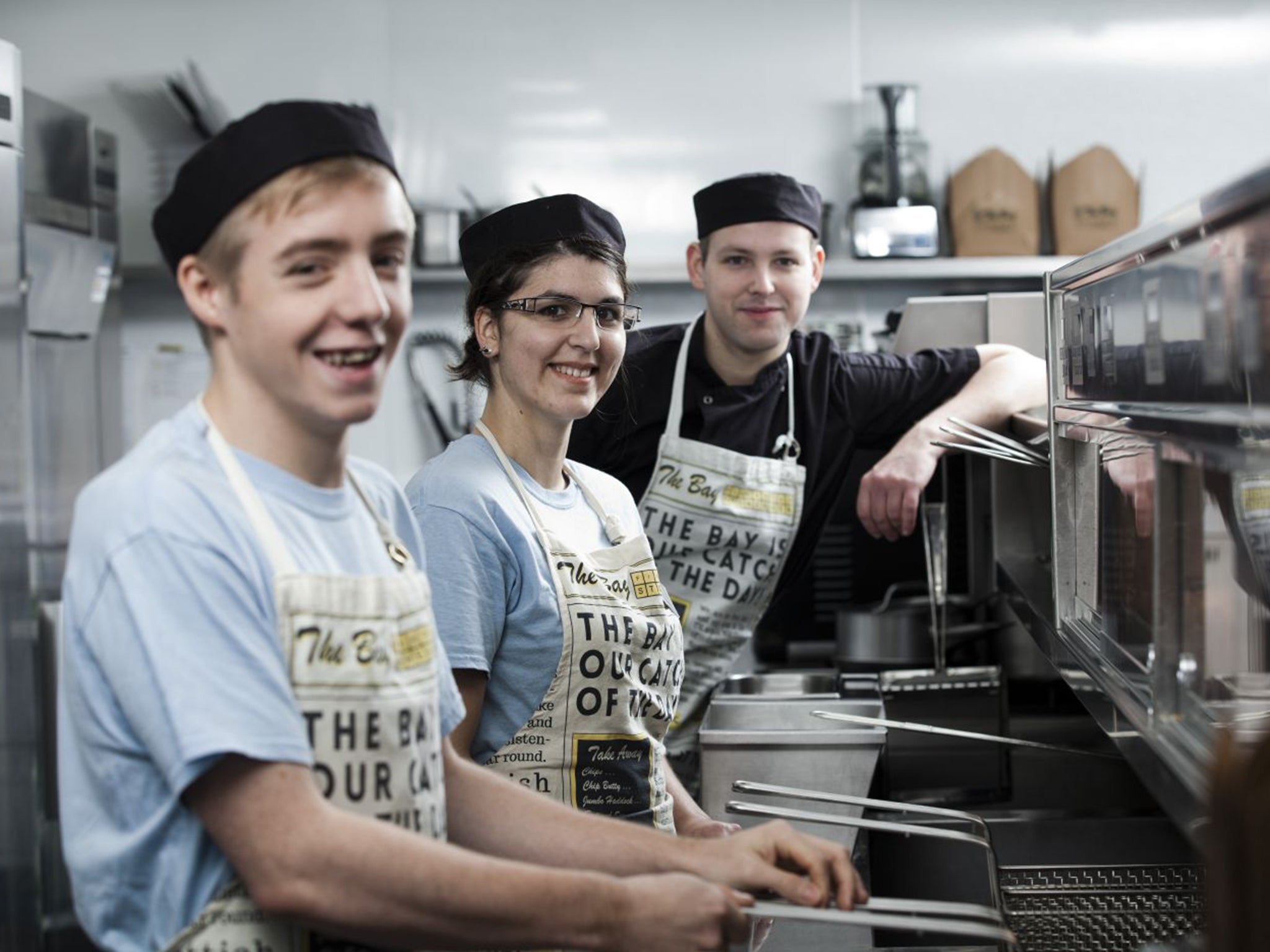
It’s only a week until the Food Made Good awards are handed out, and the shortlist is announced today.
The Independent on Sunday has partnered with the Sustainable Restaurant Association to support these awards, which take place on 22 March in London. From fine dining establishments to farm cafés, there’s a brilliant array of names hoping to win. They all have impressed with their care for the environment, the produce they serve and their staff too.
Further details of all the places can be found at foodmadegood.org/awards. Next week we announce the winner of the People’s Favourite, as chosen by you, and the name of the recipient of the Raymond Blanc Sustainability Hero Award.
The People’s Favourite
Sponsored by Independent on Sunday
The Cafe in the Park, Rickmansworth: The café supports its local community, buying from the local florist, dairy and cheese maker. It also runs a volunteer programme for adults with learning difficulties and pays staff the equivalent of the Living Wage.
The Gallivant, Camber: With 95% of produce sourced within 10 miles of the restaurant; fish caught on day-boats and tea, coffee and chocolate produced to environmentally positive standards, even the puddings are guilt-free at The Gallivant.
Gillam’s Tearoom, Ulverston: Customers can select from 80 carefully chosen, organic teas. And as well as the usual tearoom fare – of homemade sandwiches and cakes, specials include tagines, curries and cassoulets – all vegetarian. Gillam’s operates as something of a community centre too, supporting the local special school, hosting musical evenings.
Lussmanns Fish & Grill, St Albans: The restaurant supports numerous local charities and recently achieved MSC Chain of Custody certification, ensuring that all fish on the menu are from well-managed fisheries. It also serves high-welfare meat, locally produced drinks and even British-grown tea.
Yeo Valley HQ Canteen, Blagdon: The restaurant, with fabulous views over the nearby lake, is powered by solar panels and often hosts events to encourage sustainability. The food focuses on Yeo Valley’s own organic produce and seasonal vegetables, as well as local community growing initiatives.
Food Made Good Independent of the Year
Sponsored by Shaftesbury
café-ODE, Ness Cove, Devon: At the forefront of sustainable dining since it opened; this seaside café sources whole local deer for venison burgers and meatballs, holds masterclasses for the WI and local schoolchildren and keeps customers warm using upcycled lambs’ wool for insulation.
The Captain’s Galley, Scrabster: Expect only the most sustainable seafood, landed in the harbour on the doorstep of Britain’s most northerly mainland restaurant. Owner chef Jim runs a local festival to promote sustainable seafood and runs his own car on used cooking oil.
Poco, Broadway Market, London: Lemons are the only imported fresh ingredients on Poco’s tapas menu infused with the philosophy of co-owner Tom Hunt: root to fruit eating. So leaves, shoots and roots share top billing with organic and fairly traded produce in the restaurant built from sustainable English wood.
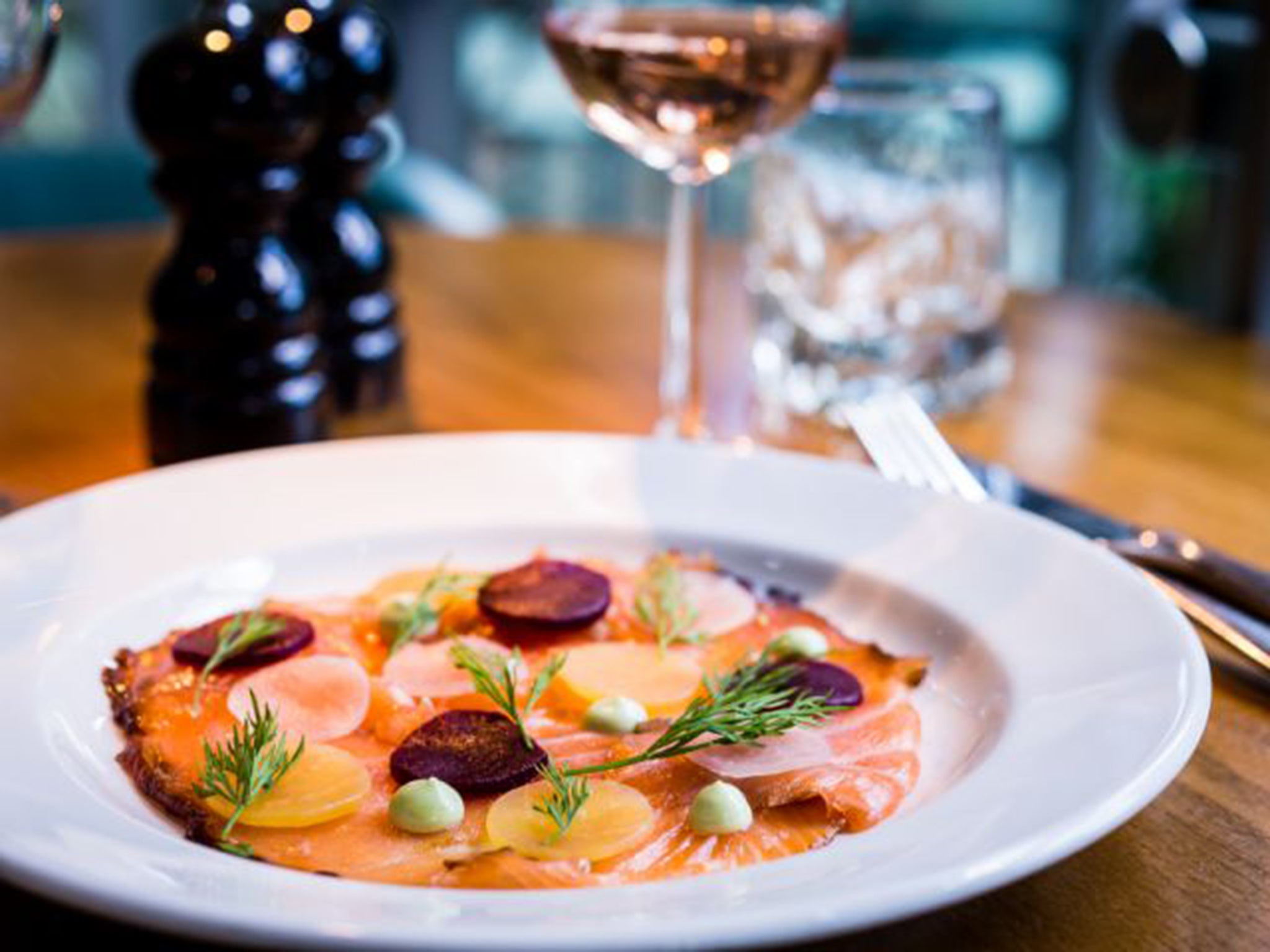
Food Made Good Small Group of the Year
Daylesford, Gloucestershire and London: It’s as if the term field-to-fork was devised for Daylesford’s restaurants, where the majority of ingredients are home-grown or reared, including plants like wild garlic and elderflower. And customers can find out more via the new film A Love for Food.
Hawksmoor, London and Manchester: With a coveted reputation built on superbly sourced beef, Hawksmoor has raised more than £500,000 for Action Against Hunger and is a constant presence on the Sunday Times 100 Best Companies to Work For. 2016 will see the group supporting local beekeepers.
Lussmanns Fish & Grill, Hertfordshire: Organic lamb, beef and milk are just some of the new additions to Lussmanns’ menu which also includes UK-only sparkling wine. Tables are decorated with locally hand-made paper flowers and it plays a central role in the Sustainable St Albans festival.
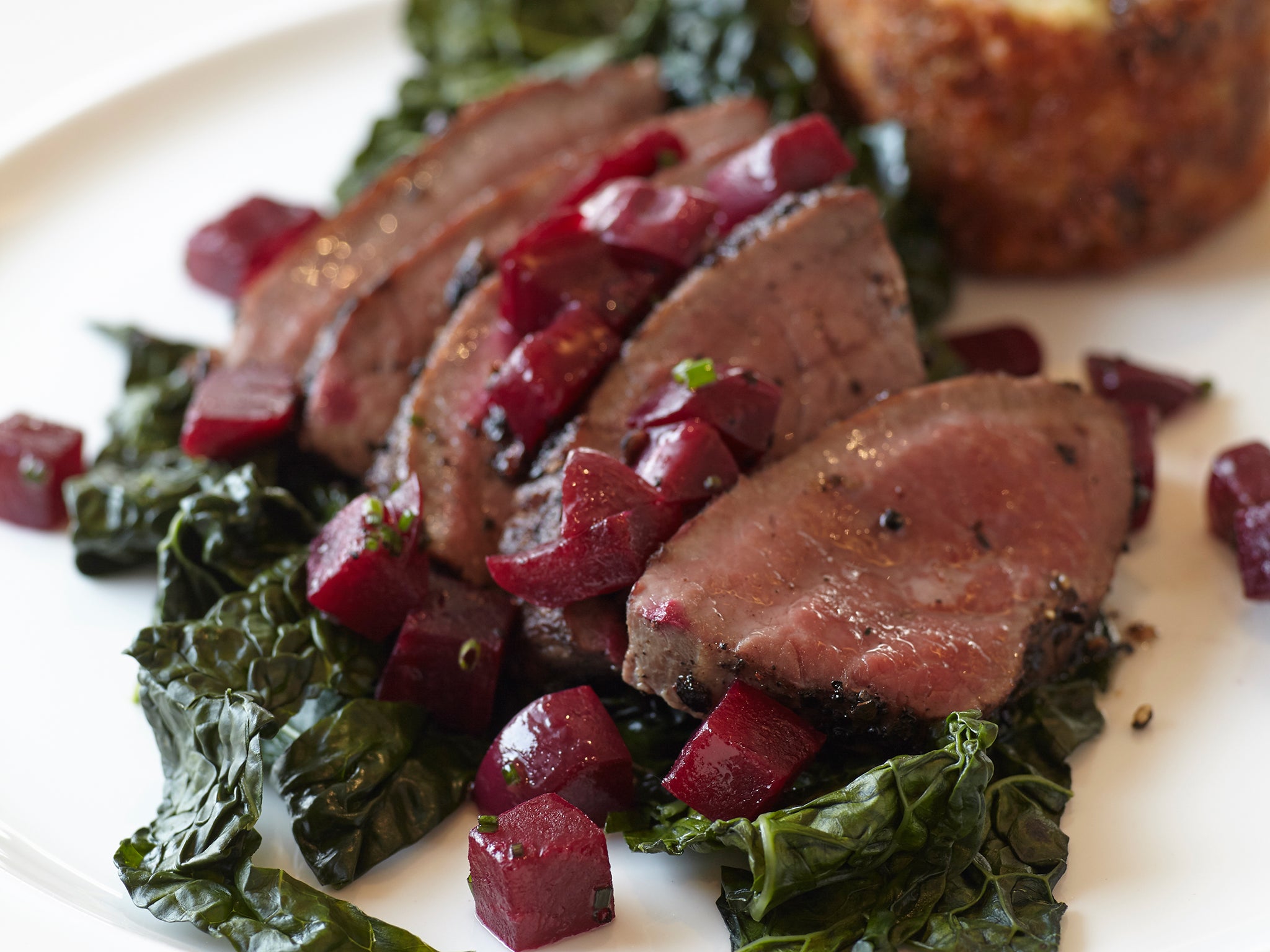
Food Made Good Large Group of the Year
Sponsored by Chapman Ventilation
Boston Tea Party: BTP’s innovative and fun approach to sustainability is epitomised by its scheme that sees used coffee grounds delivered to Dartmoor prison where prisoners use them to grow oyster mushrooms which are served in the cafés – neat!
Carlucccio’s: In the last year the group has introduced 100% renewable energy and food waste recycling in all of its 100+ restaurants. Customers can now also enjoy more British, seasonal vegetables and fish, as well as free-range beef and lamb.
Geronimo Inns: Fulfilling brief of being community hubs; Geronimo pubs use local allotments, organise ‘meet the neighbour’ events, give quiz money to charities and encourage staff to volunteer at their local city farms. Its Tasty Tuesdays also showcase local suppliers.
Wahaca: To meet the challenge of serving authentic Mexican food in the UK, Wahaca has been working with Riverford Organic to grow poblanos and tomatillos. Bad Boyz bakery in Brixton prison is supplying bread. The growing business is also the first Carbon Neutral restaurant group in the UK.
Food Made Good Award for Environment
Sponsored by SWR
The Bay Fish & Chips, Aberdeenshire: This Aberdeenshire chippy changes its menu to accommodate food that would otherwise be neglected and turns fish bones into fish feed. All takeaway disposables are made from sustainable materials and energy use is strictly monitored using state of the art smart metering.
Arbor Restaurant at The Green House Hotel, Bournemouth: This hotel really is a green house, sending waste cooking oil to be converted into biofuel, serving filtered water, providing chairs made out of recycled Playstations and using pencils made from recycled CD cases. What little food waste it produces is composted and sent to local farms.
Poco, Bristol: Deliveries by bicycle, a ban on bottled water and air-freight, 100% renewable energy, menu items using ingredients that would otherwise have gone to waste and reclaimed and recycled furniture and fittings are just some of the environmentally responsible measures in place at Poco.
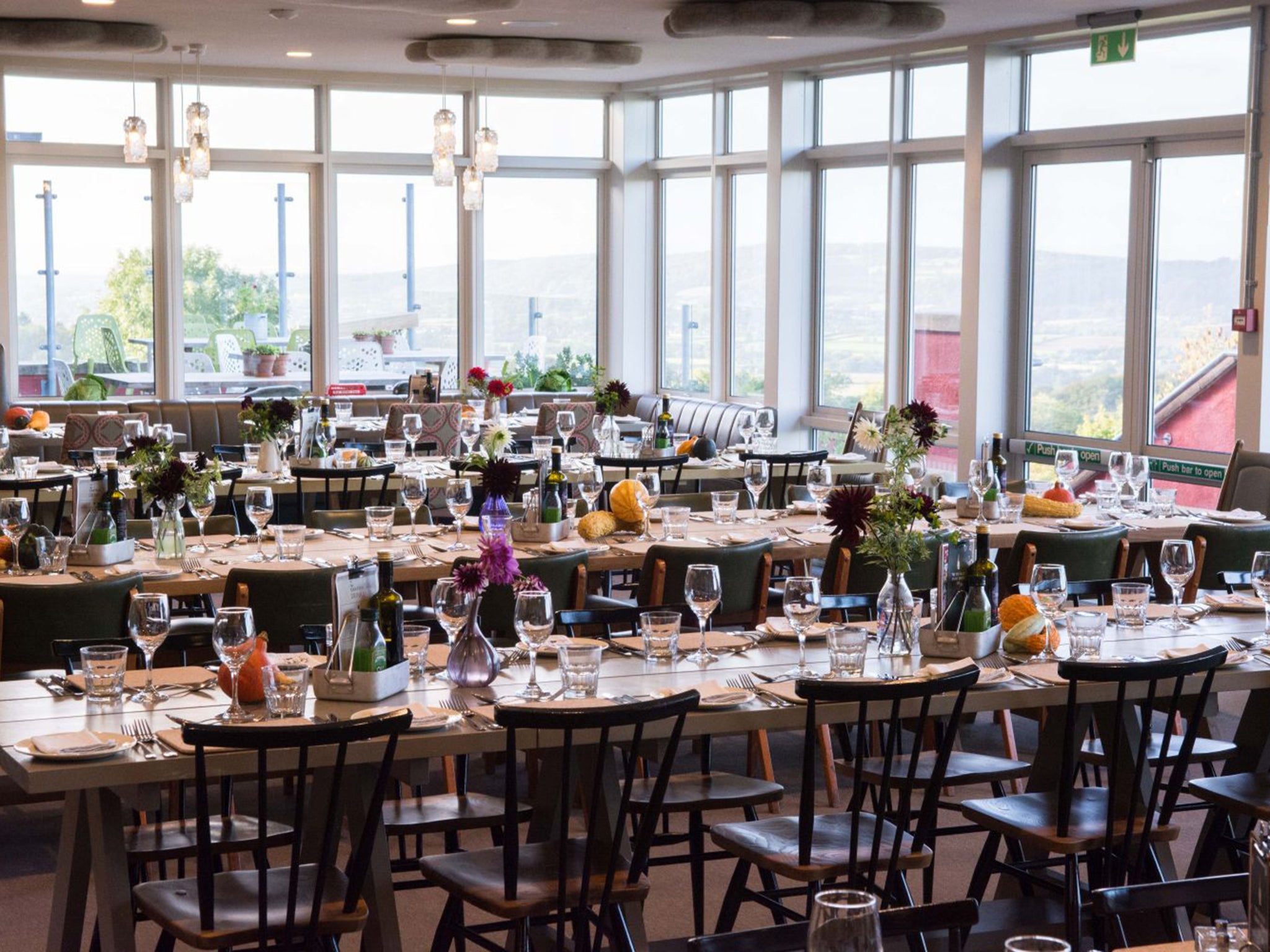
Food Made Good Award for Society
Sponsored by Nestlé Professional
Artizian Catering Services: Have raised thousands for charities including National Autistic Society and Barnardos; run cooking classes on what to do with leftover food; grown vegetables to donate to a local soup kitchen and collected milk bottle tops for LUSH to make into pots, and that’s not to mention extensive staff training.
The Brookwood Partnership: With a host of initiatives aimed at encouraging healthy eating amongst its school children clientele, Brookwood also runs an annual environmental awareness day Planet Matters; sponsors bee colonies and has a host of forward-thinking employment practices.
Gather & Gather: Staff are encouraged to participate in events to support the MITIE group’s charitable foundation and the many good causes it provides for helping and inspiring young people into work. Employees benefit from a wide range of training and benefits and customers are given all information and options to eat healthily.
THE PIG Hotel, Brockenhurst, Hampshire: A map pinpointing all of the restaurant’s local suppliers communicates clearly its ethical philosophy to customers. Chefs work with at least ten local schools and colleges promoting cooking skills and healthy eating. Water Aid, Hospitality Action and Action Against Hunger are just some of the charities supported by The Pig.
Food Made Good Award for Sourcing
Sponsored by Reynolds
cafe-ODE at Ness Cove and Gara Rock, Devon: These two seaside cafés both adhere to the highest standards of sourcing across the board: meat is local and free-range, seafood is sustainable and seasonal, nothing that is imported is air-freighted and everything that can be is Fairtrade.
Poco, Bristol: Chefs work with butchers, fishmongers and vegetable growers to take cuts of meat, species of fish, and abundance of produce that they are finding hard to sell and write it into the menu to support small local producers and optimise the seasonality of the menus.
River Cottage HQ, Devon: Almost half of all the ingredients used in the restaurant are grown or reared on-site ensuring the ever-changing menus take full advantage of the seasons. All the meat is free-range and organic and the wine list is exclusively either English, organic, biodynamic or natural.
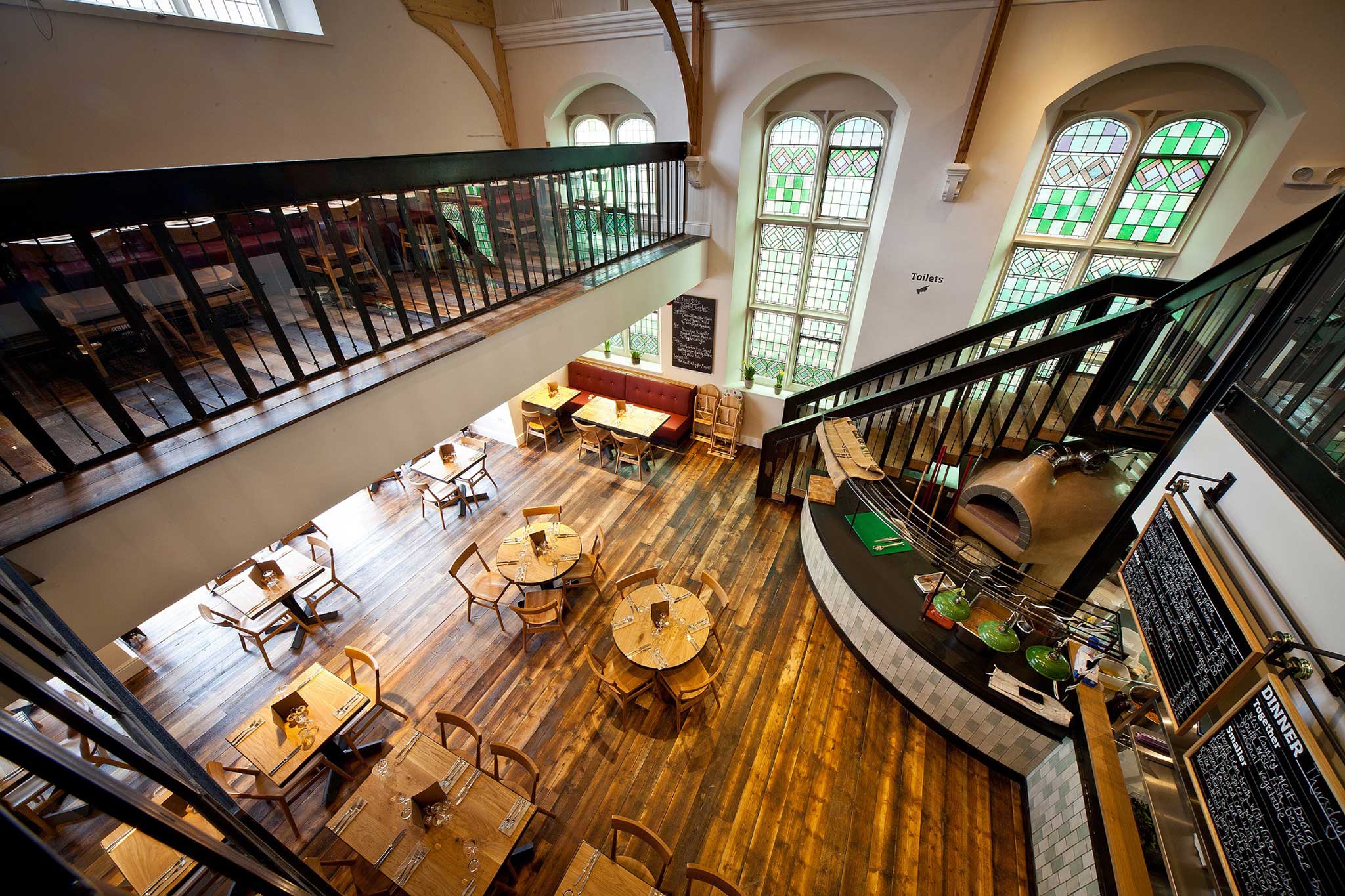
Sustainable Innovation Award
Sponsored by Belu
bio-bean: Until bio-bean came along with its smart clean technology, no one had looked at the brown sludge at the bottom of coffee machines around London and seen an opportunity to turn the capital’s 200,000 tonnes of waste grounds into fuel for heating buildings and powering vehicles.
Foodspeed: This South East dairy supplier has introduced to the hospitality sector Free Range milk, a new layer of ethically produced milk between standard and organic which supports low impact farming, pays farmers a premium and ensures cows have access to pasture for at least six months a year.
Virgin Atlantic Airways: Three years after launching its industry leading programme, Change is in the Air, to transform worldwide airline catering, as well as increase demand for more sustainable dining; 70% of the 12m meals Virgin serves this year will meet its new, far-reaching sustainability standards.
The following four award categories are all sponsored by Eureka Executive and the highest rated overall will be awarded Food Made Good Champion 2016.
English Food Made Good Champion 2016
cafe-ODE Ness Cove, Devon: At the forefront of sustainable dining since it opened, this seaside café sources whole local venison for burgers and meatballs, holds masterclasses for the WI and local schoolchildren and keeps customers warm using upcycled lambs’ wool for insulation.
Daylesford, Gloucestershire and London: It’s as if the term field-to-fork was devised for Daylesford’s restaurants, where the majority of ingredients are home-grown or reared, including plants like wild garlic and elderflower customers can find out more via their new film, A Love for Food.
Poco, Broadway Market, London: Lemons are the only imported fresh ingredients on Poco’s tapas menu infused with the philosophy of co-owner Tom Hunt: root to fruit eating. So leaves, shoots and roots share top billing with organic and fairly traded produce in the restaurant built from sustainable English wood.
Scottish Food Made Good Champion 2016
The Bay Fish & Chips, Aberdeenshire: Haddock certified by the MSC, homemade batter and Lincolnshire potatoes combine for The Bay’s sustainable fish supper. The Bay also boasts recyclable takeaway boxes; a mission to communicate its responsible approach and a wholehearted approach to supporting the community.
Cafe St Honoré, Edinburgh: Chef Neil Forbes never stops looking for quality local producers, recently sourcing a new Scottish gin and organic smoked salmon. All wines are organic, biodynamic, natural or Fairtrade. He’s equally tireless when it comes to promoting his sustainability message to customers and local schools.
The Captain’s Galley, Scrabster: Expect only the most sustainable seafood, landed in the harbour on the doorstep of Britain’s most northerly mainland restaurant. Owner-chef Jim runs a local festival to promote sustainable seafood and runs his own car on used cooking oil.
Welsh Food Made Good Champion 2016
The Clink Restaurant at HMP Cardiff: Guests are cooked for and served by prisoners being trained for a career in hospitality. Featured on the menu ae chicken and Welsh Black Beef from the nearby HMP Prescoed as well as their own eggs. Often rated best restaurant in the Welsh capital on TripAdvisor.
The Gallery, Barry: Foraged ingredients supplement the menu already dominated by local food, including fish caught by day boats off the nearby coast. Barry Town FC is just one of the local organisations supported by The Gallery. The restaurant was designed with a light atrium to negate the need for electric light in the day.
Irish Food Made Good Champion 2016
Ashford Castle, County Mayo: An example of a luxury hotel employing classic sustainability techniques in the kitchen, where orange peel is dried and made into powder for desserts, and apple peels and cores are also re-used. The restaurant is also a long-time supporter of a local community centre.
KSG at University College Cork: Students and staff can enjoy home-grown herbs and vegetables to complement produce supplied by a group of local producers and farmers. A nutritionist is on hand for advice on healthy eating and students can also buy fresh fruit and veg at regular ‘market days’.
The Lodge at Ashford Castle, County Mayo: Head chef Jonathan Keane makes full use of the fruit and vegetables grown on-site as well as the fruits of daily foraging. He’s also a regular at the local secondary school, running healthy eating cookery classes.
Food Made Good Caterer of the Year
Sponsored by U-Select by PKL
Artizian Catering Services: A committed and comprehensive approach to healthy eating is at the heart of Artizian’s offering. The company promotes this and all off its many other sustainability initiatives widely. A growing range of Fairtrade ingredients, free-range meat and eggs and biodynamic wines all feature on its menus.
Bartlett Mitchell: 2015 has seen this caterer continue its year-on-year improvement, adding more sustainable seafood and more free-range meat to its menus. The company has adopted over 40 beehives and has helped fund water pumps in Africa as well as using a range of smart ways to communicate its philosophy to customers.
The Brookwood Partnership: This school caterer’s mission to feed pupils a healthy diet means it’s removed salt from its kitchens and uses minimal quantities of sugar. Healthy options are standard and the students can learn daily about the story behind their meals with ‘Where Does My Food Come From’ information leaflets.
Best Food Waste Strategy
Sponsored by Unilever Food Solutions
Pizza Express: Engaged staff at all levels to transform the company approach to waste by training 8,000 staff to recycle food waste. Succeeded in increasing the proportion of restaurants sending food waste for anaerobic digestion from 4% to 93%, diverting 3,000 tonnes from landfill.
FoodInResidence, The University of Manchester: Having established students’ appetite for action; the university implemented wholesale changes to its catering operation – removing trays, reducing portion sizes and requiring students to scrape off their leftovers. The results; a quarter less plate waste and almost seven tonnes less total food waste.
Vacherin: To tackle the serious issue of ‘ugly’ fruit and vegetables going to waste, the caterer introduced the I’mperfect Initiative; sourcing and serving perfectly tasty but wonky fruit and vegetables. To date, it has served more than three tonnes and plans to double this to ‘save’ more food.
Most Improved Sustainability
Sponsored by Paper Round
The Brookwood Partnership: The last 12 months have seen major changes to the ingredients delivered to the schools catered for by Brookwood, including more organic, British and Fairtrade produce – none of which is now air-freighted.
Gather & Gather: Hiring apprentices, introducing new healthy options on their menus and promoting its ethical approach all significantly enhanced this caterer’s overall sustainability, along with a crackdown on food waste and a switch to eco-cleaning products and more seasonal seafood.
The Roebuck, Borough, London: The South London pub has taken giant strides this year, led from the front by its owner who raised money by running a marathon. Where previously about half of the fruit and veg was locally sourced, and the same proportion of meat free range – now customers can enjoy these standards 100% of the time.
International Food Made Good Champion 2016
Les Orangeries, France: All the meat that chef David Royer prepares is free-range but he’s focussed on upping the proportion of vegetables on diners’ plates mostly using produce from the restaurant’s garden, now home to an organic orchard too. A children’s choir is just one of the local organisations supported by the restaurant.
Relæ, Denmark: Christian Puglisi’s Copenhagen restaurant is the only organic certified Michelin starred one in the world, which means more than 90% of ingredients are indeed organic, including the mussels. They help develop healthy menus for local schools and use energy efficient inductions hobs.
The Lodge Verbier, Switzerland: Foraged fruit from the surrounding alpine larder and butter, yoghurt and cheese from the village dairy contribute to all-round high quality sourcing. Latent heat in the property is captured to heat the building and customer donations for tap water help fund water schemes in Africa.
Food Made Good University of the Year
Sponsored by TUCO
University College Cork (KSG): Students and staff can enjoy home-grown herbs and vegetables to complement produce supplied by a group of local producers and farmers. A nutritionist is on hand for advice on healthy eating and students can also buy fresh fruit and veg at regular ‘market days’.
Durham University: Keen to work with more small-scale local producers, it brought them together via one large supplier. Its sustainable approach is illustrated by work with a local butcher and mushroom grower to create a reduced meat sausage which is healthier, supports local producers and reduces its carbon footprint. Bang for its banger!
Plymouth University: Seasonal fish, local free-range eggs and RSPCA Assured charcuterie exemplify the carefully sourced ingredients on its regularly changing menus with a strong nod to healthy eating. The university has a strong record of employing apprentices and educating local school children about food.
Food Made Good Supplier of the Year
Delphis Eco: Recently selected by the Government to represent the Green Economy in its GREAT Britain Campaign, Delphis Eco offers the industry the largest range of plant-based cleaning products. Our judges said: “They are single minded in their approach to sustainability – it is their business model.”
London Linen Group: The judges highlighted the company’s low-energy steam laundry, and innovative schemes to transform recycled plastic bottles into chefs’ jackets and waste into bags for life. Judges said they were taking care with every element of the business.
Trenchmore Farm: A small scale, low impact Sussex Farm producing high welfare, grass-fed beef, sold in half or whole carcasses direct to chefs. They also make cider with the orchard's traditional apples and a 4,000kg apple swap with local gardeners. The ‘waste pomace’ is fed to the cattle.
Join our commenting forum
Join thought-provoking conversations, follow other Independent readers and see their replies
Comments
Bookmark popover
Removed from bookmarks